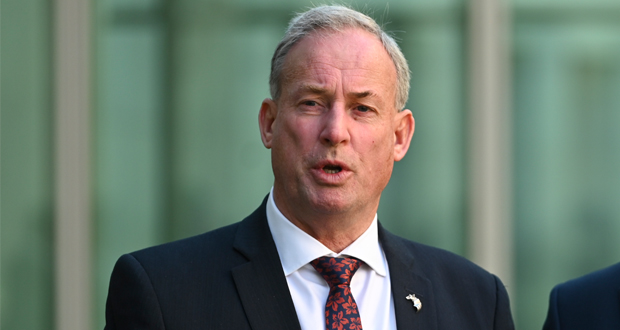The Commonwealth appears to be missing in action.
That was counsel assisting Peter Rozen's assertion as he discussed governance and leadership within the aged care sector while wrapping up a week of royal commission hearings centred around the aged care workforce.
Rozen said the Commonwealth needs to demonstrate leadership and commit the resources necessary to ensure delivery of an aged care system that meets community standards, and added: “It needs to act quickly.”
“There appears to be a lack of leadership and expertise about aged care within the Department of Health,” he said.
That concern was echoed by Benetas chief executive Sandra Hills, who appeared at the royal commission on Thursday and called for a Cabinet Minister for Ageing.
When Rozen asked Hills at the hearing on Thursday if the Department of Health was providing enough leadership, she responded: “No.”
Earlier in the day, Rozen pushed Glenys Beauchamp, secretary of the Department of Health, on the topic of commonwealth leadership as it related to Australia’s Aged Care Workforce Strategy, put together by Professor John Pollaers.
At the heart of the back and forth was a briefing note on the Pollaers report prepared by the Department for then aged care minister Ken Wyatt.
In relation to a government response to the report, that briefing note read:
One of the risks to government would be that it would invite renewed criticism of the absence of similar responses to other aged care review reports including the Legislated Review of Aged Care and the Review of National Aged Care Quality Regulatory Processes.
“A further risk for government is that a formal government response will invite public statements by key stakeholder groups drawing renewed attention to sensitive matters such as staff ratios, aged care funding, access to health services for older Australians and service quality.”
When asked to confirm that the Department was advising the Government of political risks and potential embarrassment rather than advising the Government that it ought to be publicly embracing the outcome of the Pollaers report, Beauchamp responded: “On this particular occasion, yes, but – if I could just add – we provide a range of advice to the Minister. This is one piece of advice.”
Later, she added: “We have provided advice – and I’ve had conversations personally with Minister Wyatt – to embrace the recommendations.”
To which Rozen responded: “This is not leadership. Is it?”
“This is one piece of advice in a range of advices that go to Ministers,” Beauchamp said.
Later, commissioner Lynelle Briggs described the challenges the Department faces in working to enact change while the royal commission completes its work and added: “It’s quite challenging, for a royal commission to find a steady state here.”
Beauchamp said: “There’s been a number of comments… about tardiness and delays and things. And yet you’re saying there’s so much going on, it’s hard to keep up. That’s what it also feels like from us. There is a lot going on.”
Hills, who sits on the Aged Care Workforce Industry Council, said at Thursday’s royal commission hearing that she was unsure how the Department of Health was preparing itself to support the Council in delivering on the strategic actions set out in the Pollaers report.
Rozen said the Council is struggling to build momentum and lacks the resourcing of the broader industry and of the Commonwealth. “Based on the current progress and the structures in place for implementation, there must be real concerns about whether the strategic actions can be achieved in the three-year timeframe set down by Professor Pollaers.”
Later on Friday, union United Voice said via a statement there had been “nothing but silence” from Minister for Aged Care Richard Colbeck on the sector’s workforce issues.
Carolyn Smith, United Voice’s national director of aged care said: “There has not been a whisper from the Aged Care Minister on any of these serious issues raised across the week.”
Smith called on Colbeck to increase funding “that is tied directly to staffing levels".
Wrapping up a week of workforce woes
When it came to the issue of the aged care workforce – which formed the backbone of this week’s hearings – Rozen put it flatly:
“The workforce is too small. The bare minimum has become the norm. It is unsustainable.”
He added that the current workforce doesn’t have the right skills mix. “The evidence suggests skills deficits across the sector, exacerbated by time-poor staff and threadbare rostering practices.
“On current trends, the entire system is under serious threat, and without fundamental change we’re concerned the system will fail.”
Rozen also urged the commissioners to consider a registration scheme for personal care workers and to make recommendations to “address low remuneration in the aged care sector”.
Summing up his address, Rozen said: “We ought follow Commissioner Tracey’s lead and be exceedingly grateful for the dedication that so many aged care workers display on a day-to-day basis.
“However, we submit that gratitude needs to mean something in real terms. It needs to mean a safe place to work. It needs to mean respect for that work. It needs to mean that the work is properly valued.”
Do you have an idea for a story?Email [email protected]
 Aged Care Insite Australia's number one aged care news source
Aged Care Insite Australia's number one aged care news source

